 Please welcome Kathy Brandt! She’s stopping by for a “How I Write” Q&A feature, and is giving away a copy of her book, Walks on the Margins: A Story of Bipolar Illness. Unfortunately I couldn’t keep up with these posts during #COBookMonth… but I’ll be slowly catching up over the next couple of months.
Please welcome Kathy Brandt! She’s stopping by for a “How I Write” Q&A feature, and is giving away a copy of her book, Walks on the Margins: A Story of Bipolar Illness. Unfortunately I couldn’t keep up with these posts during #COBookMonth… but I’ll be slowly catching up over the next couple of months.
About the author:
Kathy writes The Hannah Sampson Underwater Investigation Series (Swimming with the Dead, Dark Water Dive, Dangerous Depths, and Under Pressure), which were recently released as ebooks. Walks on the Margins, A Mother’s and Son’s Story of Bipolar Illness, co-written with her son, Max Maddox will be released in April, 2013. She was president of the National Alliance on Mental Illness in Colorado Springs (NAMI) and received the 2012 National Member of the Year Award for her service to NAMI. Kathy has a B.A. in English and an M.A. in Rhetoric and taught writing at the University of Colorado for ten years. Visit her website: www.kathybrandtauthor.com.
Author Links: Website | Blog | Twitter | Facebook | Goodreads | Pinterest
Are you a planner (outline, etc.) or do you “pants” it?
I co-wrote, Walks on the Margins, A Story of Bipolar Illness, with my son. I’d kept a journal. My son wrote from memory. Obviously, we knew the material and how the book would proceed so we didn’t outline before drafting. We did outline the book afterwards to get a complete picture of what we’d done. Then we did a lot of restructuring and rewriting, cutting material, and working on the story arc.
The process was much the same as with my Underwater Investigation Series. I start by doing some general research and plotting. I simply can’t outline my fiction because about a quarter of the way through, I don’t know what happens next. Instead, I do time lines and character descriptions. Then I write the entire book. I find comfort in Anne Lamont’s statement that everyone deserves the luxury of writing “shitty first drafts.” Mine definitely fit that category. But it happens that I love the rewriting process. My first draft is my chance to discover meaning—what it is that I really want this book to be about. When I have a story—a beginning, middle, and end—I revise and revise. I move scenes, drop characters, cut, paste, add, subtract and then I toy with prose.
Do you write daily or sporadically when you’re inspired?
I’m afraid my writing habits are somewhat unhealthy. I tend to be driven. I know of only two remedies. One would be therapy. The other is to plant myself down in front of my computer and write. I usually write–four or five hours, five days a week. Sometimes, when I’m lost in a story, it turns into eight or ten hours. I’ve learned to protect my time and space. Since I write full-time, I conduct my day like a nine- to-five job. I have the luxury of isolation. I live on seven acres down a long gravel driveway in the Colorado mountains. Only the invited make their way to my door and only when the road is clear. Even UPS will not venture up the hill in the snowy season.
What inspired you to want to become a writer?
I don’t think I ever made a conscious decision to write. I have always been a writer, probably since I could hold a pencil. As a kid, I would write in notebooks, toy with poetry. I’ve kept a journal on and off for years. I turn to it especially when things are interesting, or when life gets tough or confusing. It allows me to remember, clarify, and get through hard times.
I’m also an avid reader. If I don’t have a book by the side of my bed at all times, I go into withdrawal. At eleven or twelve I devoured every Nancy Drew mystery published. When the last of our kids left for college, I started the first book of my Underwater Investigation Series, Swimming with the Dead.
Where is your favorite place to write?
When I’m creating a story, I write in bed–buried under a down comforter, laptop perched on my knees. In the summer I take my laptop to the deck. When I’ve completed a draft, I head to my office–a small room downstairs, with two glass filled walls. I go there for the desk–a place to spread out, shelves where my research is piled, a place to perch my storyboard, a place to rewrite. I love the light, but I’m too intent to notice what’s occurring on the other side of the glass. Sometimes I look up, surprised to see a mule deer or an elk pulling leaves off an aspen. But I’m mostly unaware, too intent moving scenes, dropping characters, cutting, pasting, adding, subtracting, and toying with prose.
What tool(s) do you use to write? Microsoft Word, Pages, Scrivener, typewriter, pen and paper, and/or napkins/toilet paper?
I use a yellow legal pad to draw story arcs and plan, but my laptop is my best friend. I use Microsoft Word.
How do you overcome writer’s block?
When the writing is hard, I enlist every ounce of will power to avoid looking for something, anything, more satisfying. Even cleaning the toilet sounds appealing. And the writing is often hard for me. I get stuck. I agonize. I question. I wonder if it’s good enough, if I’m good enough. But I just keep going. I’ve spent many hours looking a blank computer screen, but I know if I get out of the chair, the book will never get done. It can be painful. The good days keep me going, the days I peck out a word that turns to a sentence that turns to a page, the times my characters take on lives of their own and decide events for me.
What’s the best piece of advice you’ve received for writing?
Keep writing. The more you write, the better you get.
What are your thoughts on traditional publishing vs. self-publishing?
My mysteries were traditionally published with Penguin/NAL. They were wonderful to work with. However, after talking to a lot of people and doing considerable research, my son and I are self-publishing our memoir, Walks on the Margins, both as an e-book and print on demand. Self-publishing means more money—65-70 % for an e-book, a bit less for POD while royalties from traditionally published books usually run around 8%. Self-publishing also eliminates the middle men and women (publishers agents) and gives the author full control of the book—from book cover to pricing. Unless you’re a Stephen King, publishers don’t do much to market your books, so to be successful, you’ll need to do your own marketing one way or the other. And if you self-publish, the book will be out within a week as opposed to a year or more with a traditional house.
But self-publishing is a lot of work. And too many writers are putting out inferior books because they can. That hurts the author and others who chose to self-publish –it gives self-publishing a bad rep. If you self-publish it’s important that you retain an editor. My son and I worked with an editor on the larger issues of structure, etc. and later with another, who line-edited and proofed the book. There’s nothing worse for your reputation than putting out an inferior book.
What types of writing events have you participated in (NaNoWriMo, conferences, workshops, etc.)? Which was your favorite?
Lately I’ve been going to workshops about e-publishing and marketing because we are e-publishing, Walks on the Margins, which released in April, 2013. I’ve attended a lot of mystery conferences (Left Coast Crime, Bouchercon, Malice Domestic) mostly to network and connect with friends. I recommend the Pikes Peak Writer’s Conference in Colorado Springs, one of the best around for all levels of writers and genres. Workshops are excellent and opportunities exist to meet reputable agents and editors.
What advice would you give aspiring writers?
I would say you need to sit down and do it. People talk about waiting for the muse, for inspiration. That just doesn’t happen for me, and I don’t think it happens for many other writers either. Inspiration comes when you write and if it doesn’t, well you have to write anyway. You need to start and finish. If you wait, it never happens. You’ve got to go sit down at the computer or pick up the pen and write. Sometimes you’ll look at your work and think “What junk,” but that’s okay. Don’t be too hard on yourself. You can always go back and rework.
When you believe you’ve written a great piece, then send it out if you intend to publish traditionally. And when rejection appears in your mailbox, send it out again. Don’t be discouraged by rejection. All writers, among them best selling novelists and prize winners, have file drawers full of rejections.



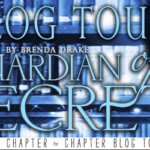
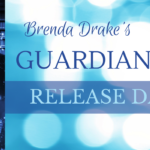

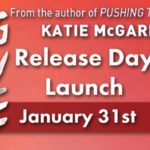
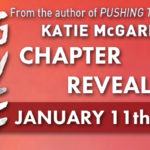
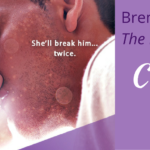
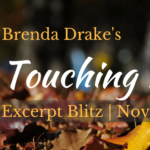
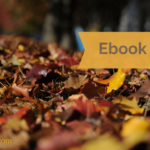

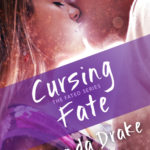



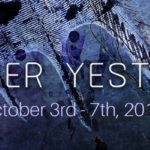
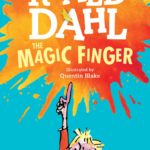

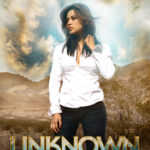

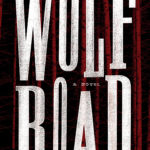

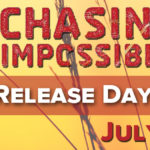

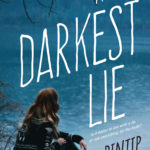
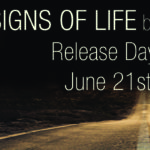



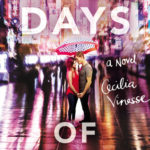
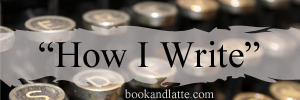













Twitter: fakesteph
says:
I love the advice. Sit down and do it. Exactly what I needed to hear. And working in bed, buried under a down comforter sounds fabulous.
fakesteph recently posted..TBR Intervention: May 2013
The writing process does indeed fascinate. I’m always impressed. Self-publishing should still mean quality. Bravo!!
Wow! I can’t WAIT to read this! I love that cover, too ; )
I wonder what kind of events or people inspired the author while writing this book!?
Thanks for the giveaway!
mestith at gmail dot com
Twitter: bookandlatte
says:
Hmm… Obviously you didn’t read the interview… but thanks for stopping by.
[…] How I Write: Kathy Brandt & Giveaway […]
Twitter: MidnightOrchid
says:
I’m glad to know that I’m not the only one who journals off and on. I always felt bad for not doing it consistently, but after reading this interview I realized I turn to my journal at the same kinds of times in life, when things are really interesting and I want to be able to look back at what I was thinking, or when things are tough and I need a place to work through them.
Since bipolar disorder is a complex subject I’m very interested to see which aspects the author chooses to touch on and just how she manages to bring everything together.
Thank you for featuring this interview, I’ve enjoyed reading it.
Melissa T recently posted..Kindle Fire Giveaway!